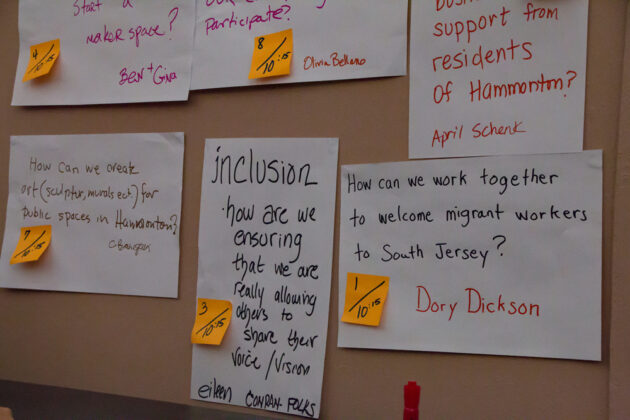An update on our strategic planning process
Equity is one of the most important issues facing society today.
As we witness the unrelenting march of current events — whether through personal experience or through our screens — it has become increasingly difficult to ignore that many of our systems are not designed to incorporate the voices and needs of all people. We’ve reached a very troubling point in our country where the tenor of conversations in kitchens, boardrooms, and the halls of government have become increasingly polarized. At times, it feels as though our democracy as we know it is slipping from our grasp, as the trust we feel toward the pillars of our society — government, business, media, and religion — erodes faster than most of us ever could have imagined.
These are indeed challenging times.
The philanthropic sector focuses on tackling difficult problems facing our society, often by working together and across sectors to find solutions. Foundations across the country are raising and wrestling with the questions and challenges of increasing equity in the communities they serve, each bringing their unique perspective and strengths to this important work.
Today, I share questions we at the Geraldine R. Dodge Foundation have been asking ourselves as part of this discussion and as we imagine the next 40 years of our foundation through our strategic review:
What might an equitable New Jersey look like? What might be our role in achieving equity in our state?
In beginning to explore the answer to these questions and others, we quickly realized that a deeper understanding of equity must begin with a deeper exploration of our own personal cultural histories, attitudes, and assumptions.
Over the past nine months, we’ve been working with a consultant to gauge the intercultural development of our board and staff, both as individuals and as an organization, and to determine how best to advance our skills in this regard. We are learning we each have a different perspective and awareness of our own identities and those of others. To become more culturally aware takes time, concerted effort, and a willingness to be uncomfortable at times.
We also embarked on an Equity Listening Tour, beginning with conversations with other foundations engaged in this work. We are learning that equity work is, in all aspects of the word, a journey. It begins in the slow, long-term work of building shared meaning, understanding the impacts — intended and unintended — inequity has had on communities, listening to the diversity of voices in communities, and examining power structures.
The work ahead is to explore how we might build more inclusive internal and external policies and practices, how to bring our partners along on this journey, and how we might amplify equity conversations in communities across New Jersey.
We do not yet have answers to these questions — and many more surely will come up along the way.
What we do know, as I shared in my strategic planning update in October, is that Dodge remains committed over the next three to five years to the areas of our current work — supporting initiatives and nonprofit organizations in the arts, education, environment, informed communities, and poetry that are innovative and promote collaboration and community-driven decision-making.
We are committed to inviting you to the conversation, and over the next several months will continue to share insights into our process and the questions we’re asking ourselves. We’ll communicate any changes to our policies or processes originating from our equity work as they arise.
In the meantime, here is a sampling of some of the articles, videos, and reports we have found helpful to better understand the historical, institutional, and structural impediments and inequalities in our society.
- The Uncomfortable Truth: Racism, Injustice, and Poverty in New Jersey (Anti-Poverty Network of New Jersey)
- Putting Racism on the Table: A Learning Series for Philanthropy (Washington Regional Association of Grantmakers)
- The Road to Achieving Equity: Findings and Lessons from a Field Scan of Foundations that Are Embracing Equity as a Primary Focus (Putnam Consulting Group)
- Can we agree on this simple definition of equity? (Nonprofit AF)
We invite you to read them, to think about them, and to consider the same questions we’re exploring — what might an equitable New Jersey look like, and what might be your role in achieving equity in our state?
